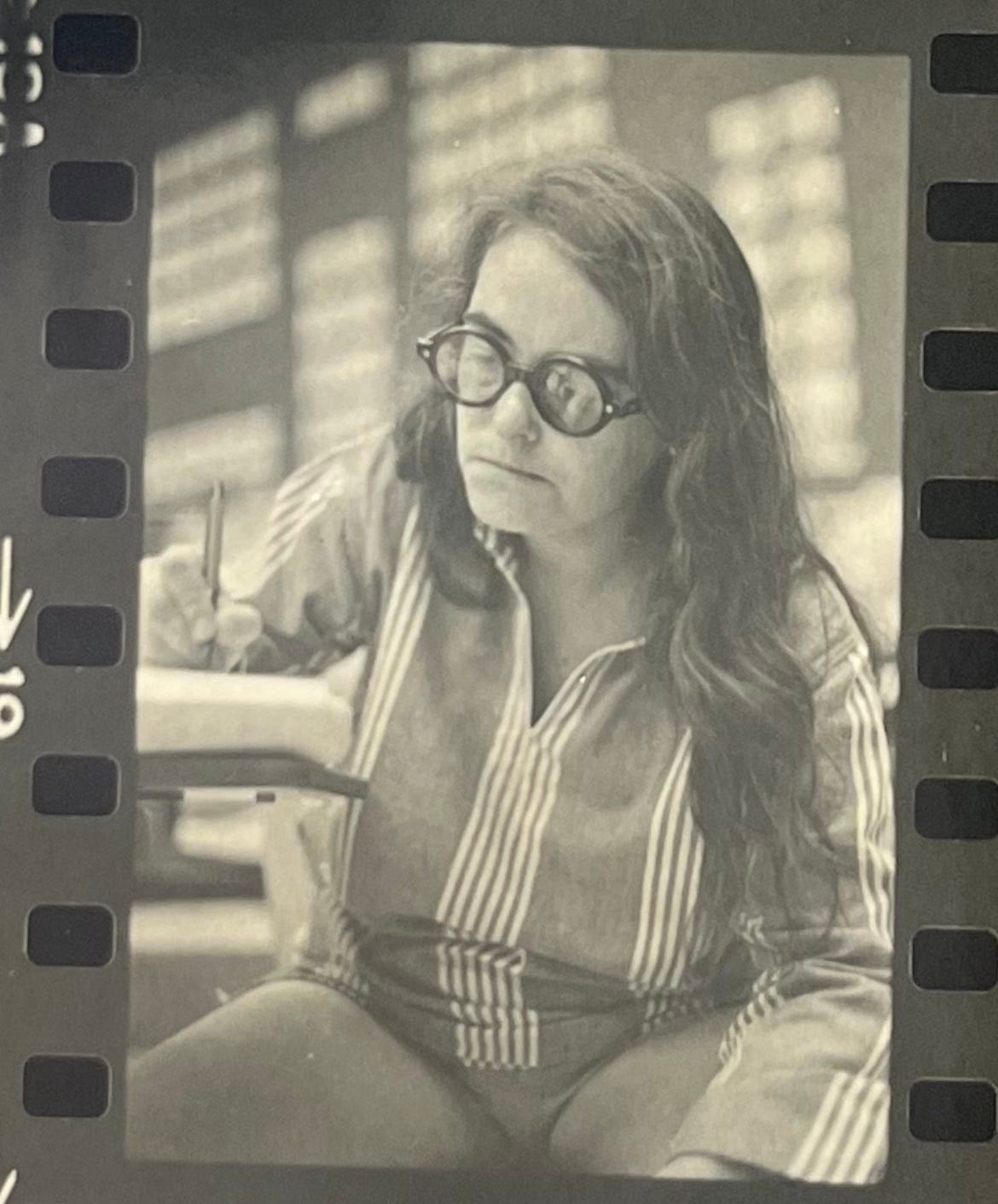When Kate Millett Created "Womanstock"
Fifty years ago, today's Birthday Girl and author of "Sexual Politics" was behind the first-ever feminist music festival.
For the last few months, I’ve been working to track down all I can from the first-ever feminist music festival thrown by today’s Birthday Girl Kate Millett at Sacramento State in May 1973. “Womanstock,” as Kate referred to it in her archives, has been grazed over with only brief mentions and memories from the contingent still around to share, but I’ve been obsessed with knowing more about an event so crucial at a critical juncture in feminist history. In 1973, Olivia Records launched, Rubyfruit Jungle was published, and Roe V. Wade was passed, just to name a few momentous cultural happenings. Kate Millett’s 1969 book Sexual Politics had been so successful, that she’d landed on the cover of Time magazine as the face of women’s lib (much to her chagrin). How could one of the most lauded and well-known second-wave feminists throw a feminist music festival and no one heard of it?
Well first, there was little-to-no press. Local stuff, the college paper, yes, and a few things in feminist/lesbian periodicals, but even those had longer lead times than a few months. Kate had been inspired by the open mic performances at the West Coast Lesbian Conference on April 14, 1973 — the CSUS Feminist Music Festival was held just weeks later on May 4, 5, and 6. Clearly, she didn’t have much history in booking shows — many musicians from the East Coast sent letters advocating for a later date — but Kate was insistent on utilizing the sponsorship of the burgeoning women’s studies program while she was a distinguished visiting professor at Sacramento State (which would not last past the end of the month).
The festival was allegedly filmed — proof of equipment rented and lists of women like Barbara Hammer and Judry Irola assigned cameras and performances to shoot — yet nothing outside of written or typed correspondence or notetaking exists of it. “Womanstock” was what she would name the film, which would never come to be. Proof of its planning is buried inside a folder called “Second Film” that I discovered with the hope of finding footage.
What I found instead was a business card for Lynda Koolish, a former lit professor who, according to the handwritten note scrawled in blank space, had taken photos of the festival. And through the magic of the lesbian phone tree, I made my way to Berkeley this week, to the home of Lynda and her wife Jean Weisinger, both photographers and cultural historians, among other things. Miraculously, Lynda had photo negatives and contact sheets from that weekend in Sacramento, images never before seen or printed that she was kind enough to share with me, including this shot of Virgo Queen Kate.
I’ve mentioned previously that I’m working on a bigger project about women and feminism and music, a book connecting feminist pioneers (writers, poets, activists, photographers, filmmakers, scholars, etc.) with rock ‘n’ roll and all its subgenres. A gathering like Womanstock coming from the face of women’s liberation at such an essential time in feminist (and lesbian!) history ought to be remembered, not as a singular event responsible for the launch of women’s music or feminist rock, but as a notable part of an often unrecognized, disconnected lineage. From Kate’s notes, I can see her dream line-up of headliners like her friend Yoko Ono and mainstream stars such as Roberta Flack and Aretha Franklin. I can read a response from Helen Reddy, who wanted to help but could simply not make a performance work in just a few months’ time. Time was the biggest issue, as was funding, but all of these stressors helped to create a vital network of women interested in all aspects of making music by women available on all levels — local, regional and national.
“It is a spontaneous celebration of the ‘New Woman,’” Kate said in a press release. “We will celebrate the new breed of women who are breaking away from roles and molds, and are making their own music, filming their own films, and writing their own history. We will be listening to the music of our revolution. You can’t have a history without music, and feminists are going to get together this weekend to celebrate their liberation and express the new consciousness and sensibility brought about by the rebirth of the women’s movement in America.”
I’m excited to be sharing my findings on Womanstock at Circa: Queer Histories Festival in October, with Kate’s correspondence, Lynda’s photos, and other context around the beginnings of women’s culture and the ways feminism and rock music informed each other (and still do). I’m still hoping to connect with others who were there, who may know where the footage for Kate’s never-made second film might live and why it never came to fruition. I also want to pay homage to the women who withstood violence, misogyny and homophobia in a hostile space and time where even the Hell’s Angels couldn’t shut them down. (True story.)
Kate Millett would have been 89 today if she hadn’t died six years ago last week. She’s best known by the masses for her groundbreaking tome taking on sexist leftists and challenging the status quo, but she also leaves behind an incredible legacy that has yet to be celebrated in its multi-faceted entirety. Here’s to adding to an ever-lengthening and strengthening chain, where the writers, the poets, the photographers, and the sisters into music link arms and don’t let go.






